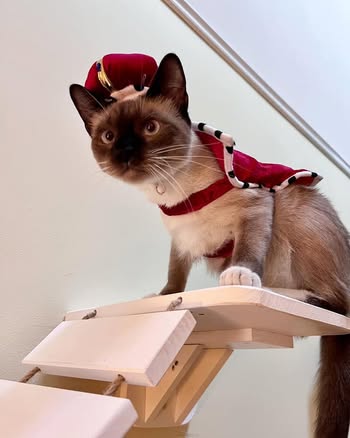If your cat has recently been prescribed a medication by your veterinarian, you likely turned to the internet for more information. Doing your due diligence is part of your role as a good pet parent, and our job as veterinarians is to provide you with as much education as we can. The veterinarians here at All Creatures Veterinary Care Center answered FAQs on cat medications and shared those facts with you below.
While the information below is accurate, it’s always best to talk to your own veterinarian about any questions you may have on how to best care for your cat, including their medications. If your cat needs a veterinarian in or near Sewell, NJ, we’d be thrilled to help ensure they’re getting the right medications for what’s ailing them. Give us a call at (856) 256-8996 today to schedule their first appointment.
What guidelines does the veterinary industry follow to determine if medications are safe and effective for treating cats?
As with human medicine, the FDA and the EPA both regulate the medications that we prescribe for your animals. Some of them are made specifically for animals, and others are used in the human world. We also have a lot of research that has been conducted over the years to ensure that the dosings for those medications are safe and effective and that the side effects, if any, are minimal.

What are the different types of cat medications used to treat their illnesses?
There are a ton of cat medications on the market. We have everything from meds to help with hairballs to prescription medications to treat various diseases, including thyroid disease and kidney disease. Those are two of the more common conditions that we can see in cats. There are medications that we use for inflammation and pain, like steroids.
There are also things like antifungals, topicals, and flea, tick, and heartworm preventatives. It can be difficult to get cats to take pills. But some prescriptions can be in liquid form or others that can potentially be in transdermal form, where a lotion with medication that goes on their ear. That's always nice when there are alternative options, as it's not so traumatic for either party.
Just as with humans, there are times when cats need to take antibiotics. If your cat has a bacterial infection, especially if they like to be outside and get into fights with other cats, they may come in with an abscess. They might need antibiotics and medications to reduce swelling and help with pain control.
Antihistamines can also be beneficial for your cat if they do a lot of allergy-related sneezing, although sometimes there's an underlying viral problem, which other medications may be needed.
If your pet's vomiting, we want to give certain types of anti-nausea, anti-vomiting type of medications. And when it comes to the previously-mentioned hairball relief, we give a supplement of laxatone to help with that, along with husbandry, grooming, and possibly dietary changes.
Are prescriptions generally more effective than over-the-counter medications?
Prescriptions are generally more effective than over-the-counter medications. Research has shown us that there's been a lot of resistance with some of the over-the-counter flea and tick products. The prescription ones are much more effective at killing those fleas and ticks. And that goes for a lot of the other prescriptions that we use, as prescriptions are not only more effective than OTC products, but they’re also safer.
Cats are also quite sensitive to many things, so it's best to know what you're giving rather than just buy something over-the-counter that might hurt them.
Do you have any tips on how to give my cat their medicine?
It can be very challenging to give cats medication, and every cat is a little bit different as far as their personality and what they'll tolerate. We know dogs are usually very food motivated, but cats are much less so. If cats know the medicine is in there, they will go around it.
The ways in which you can give your cats medicine are as follows:
- If your cat is food-motivated, you can put the pill in a treat.
- There are transdermal formulations that you rub on the inside of the cat’s ear.
- You can also get the medication compounded through a pharmacy, and that has been extremely helpful for a number of our cases, as we can do chicken chews or liquids or that sort of thing to make it a little easier.
- Use a pill popper, which is something soft you can stick a pill down into pretty easily—it’s not going to injure anything when you put it in the back of their mouth and pop it down the back of their throat.
It's a good idea to have a blanket or pillowcase for cats, which you can contain the cat in. As we know, cats love to use their claws and their teeth just to get away from you; even if they do not mean to injure you, it still hurts. And so, being able to wrap them up and have their head sticking out will help protect you and hopefully keep them a little calmer.
Can My Cat Get All It Needs from Its Diet and Supplements Alone, or Are Medications Needed?
While a good, balanced diet and the right supplements are definitely important for keeping your cat healthy, they aren’t always enough on their own, especially if your cat develops a medical condition. A high-quality diet provides the essential nutrients your cat needs day-to-day, and supplements—like omega-3s for joint health or probiotics for digestion—can certainly help support their overall well-being.
However, there are some health issues where diet and supplements just aren’t enough. For example, conditions like diabetes, hyperthyroidism, or kidney disease require medications to manage things like blood sugar levels, hormone imbalances, or kidney function. Infections, too, usually need antibiotics, and if your cat is uncomfortable, pain medications can make a big difference in their comfort.
It’s always a good idea to check with your veterinarian to see what your cat really needs. If your cat is healthy, supplements can be a great addition to their diet. But if there’s an underlying health issue, medications may be necessary to keep them feeling their best. We’re here to help figure that out together!
Why is early detection so crucial in getting a good result from cat medications?
As previously mentioned, cats will often hide any form of illness until they absolutely can't. So if your cat stops eating, shows any signs of loose stool, or is laying around more than usual, take that as a sign that they may have something sinister lurking inside that needs to be checked out. If your cat is showing symptoms, they’re unfortunately probably already pretty sick. So the earlier that we can get your cat in, do some overall wellness blood work, and perform a good exam, we can find things much sooner. If we detect an illness early on, there's a much greater chance of us being able to help your cat and hopefully get them on the road to recovery.
As veterinarians, we know how difficult it can be to get your cat to the clinic, as there can be difficulties with the cat carrier or other challenges, but we are happy to give you suggestions to ensure you get your cat the treatment they need. Never hesitate to reach out to us for advice at (856) 256-8996.
Why should I purchase cat medicines from a veterinarian instead of through an online pharmacy?
When it comes to clients purchasing medications through an online pharmacy, we're not huge fans; it comes down to what's safest for your cat. We have seen many counterfeit products, whether it be prevention or actual medications, come from online pharmacies. Online companies buy in bulk which can result in medications not being stored properly, rendering them ineffective.
By getting medications from your veterinarian, or your veterinarian office's online pharmacy, you have a guaranteed product that you know will be what your doctor recommends at the dose they're recommending. You're not only supporting your veterinarian, but helping out your cat by ensuring it's as safe as possible.
If you have additional questions about cat medications, we are here to help! As your dog’s veterinarian in Sewell, NJ, we would be more than happy to discuss what medications, if any, will help your cat be the healthiest they can be. Give us a call at (856) 256-8996, or drop us an email at [email protected] today.
